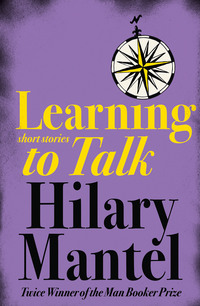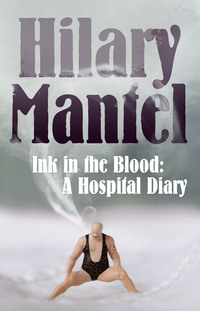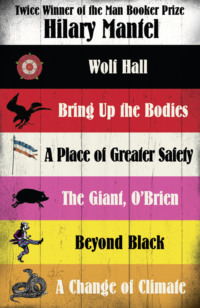
Полная версия
The Wolf Hall Trilogy
‘But he spoke against Your Grace!’
Gascoigne – who hangs doggedly to this conversation – says, ‘You didn't advance yourself there, master, speaking against the king and my lord cardinal, because I do remember your speech, and I assure you so will others, and you bought yourself no favours there, Cromwell.’
He shrugs. ‘I didn't mean to buy favour. We're not all like you, Gascoigne. I wanted the Commons to take some lessons from the last time. To cast their minds back.’
‘You said we'd lose.’
‘I said we'd be bankrupted. But I tell you, all our wars would have ended much worse without my lord cardinal to supply them.’
‘In the year 1523 –’ Gascoigne says.
‘Must we refight this now?’ says the cardinal.
‘– the Duke of Suffolk was only fifty miles from Paris.’
‘Yes,’ he says, ‘and do you know what fifty miles is, to a half-starved infantryman in winter, when he sleeps on wet ground and wakes up cold? Do you know what fifty miles is to a baggage train, with carts up to the axles in mud? And as for the glories of 1513 – God defend us.’
‘Tournai! Thérouanne!’ Gascoigne shouts. ‘Are you blind to what occurred? Two French towns taken! The king so valiant in the field!’
If we were in the field now, he thinks, I'd spit at your feet. ‘If you like the king so much, go and work for him. Or do you already?’
The cardinal clears his throat softly. ‘We all do,’ Cavendish says, and the cardinal says, ‘Thomas, we are the works of his hand.’
When they get out to the cardinal's barge his flags are flying: the Tudor rose, the Cornish choughs. Cavendish says, wide-eyed, ‘Look at all these little boats, waffeting up and down.’ For a moment, the cardinal thinks the Londoners have turned out to wish him well. But as he enters the barge, there are sounds of hooting and booing from the boats; spectators crowd the bank, and though the cardinal's men keep them back, their intent is clear enough. When the oars begin to row upstream, and not downstream to the Tower, there are groans and shouted threats.
It is then that the cardinal collapses, falling into his seat, beginning to talk, and talks, talks, talks, all the way to Putney. ‘Do they hate me so much? What have I done but promote their trades and show them my goodwill? Have I sown hatred? No. Persecuted none. Sought remedies every year when wheat was scarce. When the apprentices rioted, begged the king on my knees with tears in my eyes to spare the offenders, while they stood garlanded with the nooses that were to hang them.’
‘The multitude,’ Cavendish says, ‘is always desirous of a change. They never see a great man set up but they must pull him down – for the novelty of the thing.’
‘Fifteen years Chancellor. Twenty in his service. His father's before that. Never spared myself … rising early, watching late …’
‘There, you see,’ Cavendish says, ‘what it is to serve a prince! We should be wary of their vacillations of temper.’
‘Princes are not obliged to consistency,’ he says. He thinks, I may forget myself, lean across and push you overboard.
The cardinal has not forgotten himself, far from it; he is looking back, back twenty years to the young king's accession. ‘Put him to work, said some. But I said, no, he is a young man. Let him hunt, joust, and fly his hawks and falcons …’
‘Play instruments,’ Cavendish says. ‘Always plucking at something or other. And singing.’
‘You make him sound like Nero.’
‘Nero?’ Cavendish jumps. ‘I never said so.’
‘The gentlest, wisest prince in Christendom,’ says the cardinal. ‘I will not hear a word against him from any man.’
‘Nor shall you,’ he says.
‘But what I would do for him! Cross the Channel as lightly as a man might step across a stream of piss in the street.’ The cardinal shakes his head. ‘Waking and sleeping, on horseback or at my beads … twenty years …’
‘Is it something to do with the English?’ Cavendish asks earnestly. He's still thinking of the uproar back there when they embarked; and even now, people are running along the banks, making obscene signs and whistling. ‘Tell us, Master Cromwell, you've been abroad. Are they particularly an ungrateful nation? It seems to me that they like change for the sake of it.’
‘I don't think it's the English. I think it's just people. They always hope there may be something better.’
‘But what do they get by the change?’ Cavendish persists. ‘One dog sated with meat is replaced by a hungrier dog who bites nearer the bone. Out goes the man grown fat with honour, and in comes a hungry and a lean man.’
He closes his eyes. The river shifts beneath them, dim figures in an allegory of Fortune. Decayed Magnificence sits in the centre. Cavendish, leaning at his right like a Virtuous Councillor, mutters words of superfluous and belated advice, to which the sorry magnate inclines his head; he, like a Tempter, is seated on the left, and the cardinal's great hand, with its knuckles of garnet and tourmaline, grips his own hand painfully. George would certainly go in the river, except that what he's saying, despite the platitudes, makes a bleak sense. And why? Stephen Gardiner, he thinks. It may not be proper to call the cardinal a dog grown fat, but Stephen is definitely hungry and lean, and has been promoted by the king to a place as his own private secretary. It is not unusual for the cardinal's staff to transfer in this way, after careful nurture in the Wolsey school of craft and diligence; but still, this places Stephen as the man who – if he manages his duties properly – may be closer than anyone to the king, except perhaps for the gentleman who attends him at his close-stool and hands him a diaper cloth. I wouldn't so much mind, he thinks, if Stephen got that job.
The cardinal closes his eyes. Tears are seeping from beneath his lids. ‘For it is a truth,’ says Cavendish, ‘that fortune is inconstant, fickle and mutable …’
All he has to do is to make a strangling motion, quickly, while the cardinal has his eyes shut. Cavendish, putting a hand to his throat, takes the point. And then they look at each other, sheepish. One of them has said too much; one of them has felt too much. It is not easy to know where the balance rests. His eyes scan the banks of the Thames. Still, the cardinal weeps and grips his hand.
As they move upriver, the littoral ceases to alarm. It is not because, in Putney, Englishmen are less fickle. It's just that they haven't heard yet.
The horses are waiting. The cardinal, in his capacity as a churchman, has always ridden a large strong mule; though, since he has hunted with kings for twenty years, his stable is the envy of every nobleman. Here the beast stands, twitching long ears, in its usual scarlet trappings, and by him Master Sexton, the cardinal's fool.
‘What in God's name is he doing here?’ he asks Cavendish.
Sexton comes forward and says something in the cardinal's ear; the cardinal laughs. ‘Very good, Patch. Now, help me mount, there's a good fellow.’
But Patch – Master Sexton – is not up to the job. The cardinal seems weakened; he seems to feel the weight of his flesh hanging on his bones. He, Cromwell, slides from his saddle, nods to three of the stouter servants. ‘Master Patch, hold Christopher's head.’ When Patch pretends not to know that Christopher is the mule, and puts a headlock on the man next to him, he says, oh for Jesus' sake, Sexton, get out of the way, or I'll stuff you in a sack and drown you.
The man who's nearly had his head pulled off stands up, rubs his neck; says, thanks Master Cromwell, and hobbles forward to hold the bridle. He, Cromwell, with two others, hauls the cardinal into the saddle. The cardinal looks shamefaced. ‘Thank you, Tom.’ He laughs shakily. ‘That's you told, Patch.’
They are ready to ride. Cavendish looks up. ‘Saints protect us!’ A single horseman is heading downhill at a gallop. ‘An arrest!’
‘By one man?’
‘An outrider,’ says Cavendish, and he says, Putney's rough but you don't have to send out scouts. Then someone shouts, ‘It's Harry Norris.’ Harry throws himself from his mount. Whatever he's come to do, he's in a lather about it. Harry Norris is one of the king's closest friends; he is, to be exact, the Groom of the Stool, the man who hands the diaper cloth.
Wolsey sees, immediately, that the king wouldn't send Norris to take him into custody. ‘Now, Sir Henry, get your breath back. What can be so urgent?’
Norris says, beg pardon, my lord, my lord cardinal, sweeps off his feathered cap, wipes his face with his arm, smiles in his most engaging fashion. He speaks to the cardinal gracefully: the king has commanded him to ride after His Grace and overtake him, and speak words of comfort to him and give him this ring, which he knows well – a ring which he holds out, in the palm of his glove.
The cardinal scrambles from his mule and falls to the ground. He takes the ring and presses it to his lips. He's praying. Praying, thanking Norris, calling for blessings on his sovereign. ‘I have nothing to send him. Nothing of value to send to the king.’ He looks around him, as if his eye might light on something he can send; a tree? Norris tries to get him on his feet, ends up kneeling beside him, kneeling – this neat and charming man – in the Putney mud. The message he's giving the cardinal, it seems, is that the king only appears displeased, but is not really displeased; that he knows the cardinal has enemies; that he himself, Henricus Rex, is not one of them; that this show of force is only to satisfy those enemies; that he is able to recompense the cardinal with twice as much as has been taken from him.
The cardinal begins to cry. It's starting to rain, and the wind blows the rain across their faces. The cardinal speaks to Norris fast, in a low voice, and then he takes a chain from around his neck and tries to hang it around Norris's neck, and it gets tangled up in the fastenings of his riding cape and several people rush forward to help and fail, and Norris gets up and begins to brush himself down with one glove while clutching the chain in the other. ‘Wear it,’ the cardinal begs him, ‘and when you look at it think of me, and commend me to the king.’
Cavendish jolts up, riding knee-to-knee. ‘His reliquary!’ George is upset, astonished. ‘To part with it like this! It is a piece of the true Cross!’
‘We'll get him another. I know a man in Pisa makes them ten for five florins and a round dozen for cash up front. And you get a certificate with St Peter's thumbprint, to say they're genuine.’
‘For shame!’ Cavendish says, and twitches his horse away.
Now Norris is backing away too, his message delivered, and they are trying to get the cardinal back on his mule. This time, four big men step forward, as if it were routine. The play has turned into some kind of low comic interlude; that, he thinks, is why Patch is here. He rides over and says, looking down from the saddle, ‘Norris, can we have all this in writing?’
Norris smiles, says, ‘Hardly, Master Cromwell; it's a confidential message to my lord cardinal. My master's words were meant only for him.’
‘So what about this recompense you mention?’
Norris laughs – as he always does, to disarm hostility – and whispers, ‘I think it might be figurative.’
‘I think it might be, too.’ Double the cardinal's worth? Not on Henry's income. ‘Give us back what's been taken. We don't ask double.’
Norris's hand goes to the chain, now slung about his neck. ‘But it all proceeds from the king. You can't call it theft.’
‘I didn't call it theft.’
Norris nods, thoughtful. ‘No more did you.’
‘They shouldn't have taken the vestments. They belong to my lord as churchman. What will they have next? His benefices?’
‘Esher – which is where you are going, are you not? – is of course one of the houses which my lord cardinal holds as Bishop of Winchester.’
‘And?’
‘He remains for the while in that estate and title, but … shall we say … it must come under the king's consideration? You know my lord cardinal is indicted under the statutes of praemunire, for asserting a foreign jurisdiction in the land.’
‘Don't teach me the law.’
Norris inclines his head.
He thinks, since last spring, when things began to go wrong, I should have persuaded my lord cardinal to let me manage his revenues, and put some money away abroad where they can't get it; but then he would never admit that anything was wrong. Why did I let him rest so cheerful?
Norris's hand is on his horse's bridle. ‘I was ever a person who admired your master,’ he says, ‘and I hope that in his adversity he will remember that.’
‘I thought he wasn't in adversity? According to you.’
How simple it would be, if he were allowed to reach down and shake some straight answers out of Norris. But it's not simple; this is what the world and the cardinal conspire to teach him.
Christ, he thinks, by my age I ought to know. You don't get on by being original. You don't get on by being bright. You don't get on by being strong. You get on by being a subtle crook; somehow he thinks that's what Norris is, and he feels an irrational dislike taking root, and he tries to dismiss it, because he prefers his dislikes rational, but after all, these circumstances are extreme, the cardinal in the mud, the humiliating tussle to get him back in the saddle, the talking, talking on the barge, and worse, the talking, talking on his knees, as if Wolsey's unravelling, in a great unweaving of scarlet thread that might lead you back into a scarlet labyrinth, with a dying monster at its heart.
‘Master Cromwell?’ Norris says.
He can hardly say what he's thinking; so he looks down at Norris, his expression softened, and says, ‘Thanks for this much comfort.’
‘Well, take my lord cardinal out of the rain. I'll tell the king how I found him.’
‘Tell him how you knelt in the mud together. He might be amused.’
‘Yes.’ Norris looks sad. ‘You never know what will do it.’
It is at this point that Patch starts screaming. The cardinal, it seems – casting around for a gift – has given him to the king. Patch, he has often said, is worth a thousand pounds. He is to go with Norris, no time like the present; and it takes four more of the cardinal's men to subdue him to the purpose. He fights. He bites. He lashes out with fists and feet. Till he is thrown on to a baggage mule, stripped of its baggage; till he begins to cry, hiccupping, his ribs heaving, his stupid feet dangling, his coat torn and the feather in his hat broken off to a stub.
‘But Patch,’ the cardinal says, ‘my dear fellow. You shall see me often, once the king and I understand each other again. My dear Patch, I will write you a letter, a letter of your own. I shall write it tonight,’ he promises, ‘and put my big seal on it. The king will cherish you; he is the kindest soul in Christendom.’
Patch wails on a single thin note, like someone taken by the Turks and impaled.
There, he says to Cavendish, he's more than one kind of fool. He shouldn't have drawn attention to himself, should he.
Esher: the cardinal dismounts under the shadow of old Bishop Wayneflete's keep, surmounted by octagonal towers. The gateway is set into a defensive wall topped with a walkway; stern enough at first sight, but the whole thing is built of brick, ornamented and prettily inlaid. ‘You couldn't fortify it,’ he says. Cavendish is silent. ‘George, you're supposed to say, “But the need could never arise.”’
The cardinal's not used the place since he built Hampton Court. They've sent messages ahead, but has anything been done? Make my lord comfortable, he says, and goes straight down to the kitchens. At Hampton Court, the kitchens have running water; here, nothing's running but the cooks' noses. Cavendish is right. In fact it is worse than he thinks. The larders are impoverished and such supplies as they have show signs of ill-keeping and plunder. There are weevils in the flour. There are mouse droppings where the pastry should be rolled. It is nearly Martinmas, and they have not even thought of salting their beef. The batterie de cuisine is an insult, and the stockpot is mildewed. There are a number of small boys sitting by the hearth, and, for cash down, they can be induced into scouring and scrubbing; children take readily to novelty, and the idea of cleaning, it seems, is novel to them.
My lord, he says, needs to eat and drink now; and he needs to eat and drink for … how long we don't know. This kitchen must be put in order for the winter ahead. He finds someone who can write, and dictates his orders. His eyes are fixed on the kitchen clerk. On his left hand he counts off the items: you do this, then this, then thirdly this. With his right hand, he breaks eggs into a basin, each one with a hard professional tap, and between his fingers the white drips, sticky and slow, from the yolk. ‘How old is this egg? Change your supplier. I want a nutmeg. Nutmeg? Saffron?’ They look at him as if he's speaking Greek. Patch's thin scream is still hurting his ears. Dusty angels look down on him as he pounds back to the hall.
It is late before they get the cardinal into any sort of bed worthy of the name. Where is his household steward? Where is his comptroller? By this time, he feels it is true that he and Cavendish are old survivors of a campaign. He stays up with Cavendish – not that there are beds, if they wanted them – working out what they need to keep the cardinal in reasonable comfort; they need plate, unless my lord's going to dine off dented pewter, they need bedsheets, table linen, firewood. ‘I will send some people,’ he says, ‘to sort out the kitchens. They will be Italian. It will be violent at first, but then after three weeks it will work.’
Three weeks? He wants to set those children cleaning the copper. ‘Can we get lemons?’ he asks, just as Cavendish says, ‘So who will be Chancellor now?’
I wonder, he thinks, are there rats down there? Cavendish says, ‘Recall His Grace of Canterbury?’
Recall him – fifteen years after the cardinal chivvied him out of that office? ‘No, Warham's too old.’ And too stubborn, too unaccommodating to the king's wishes. ‘And not the Duke of Suffolk’ – because in his view Charles Brandon is no brighter than Christopher the mule, though better at fighting and fashion and generally showing off – ‘not Suffolk, because the Duke of Norfolk won't have him.’
‘And vice versa.’ Cavendish nods. ‘Bishop Tunstall?’
‘No. Thomas More.’
‘But, a layman and a commoner? And when he's so opposed in the matter of the king's marriage suit.’
He nods, yes, yes, it will be More. The king is known for putting out his conscience to high bidders. Perhaps he hopes to be saved from himself.
‘If the king offers it – and I see that, as a gesture, he might – surely Thomas More won't accept?’
‘He will.’
‘Bet?’ says Cavendish.
They agree the terms and shake hands on it. It takes their mind off the urgent problem, which is the rats, and the cold; which is the question of how they can pack a household staff of several hundred, retained at Westminster, into the much smaller space at Esher. The cardinal's staff, if you include his principal houses, and count them up from priests, law clerks, down to floor-sweepers and laundresses, is about six hundred souls. They expect three hundred following them immediately. ‘As things stand, we'll have to break up the household,’ Cavendish says. ‘But we've no ready money for wages.’
‘I'm damned if they're going unpaid,’ he says, and Cavendish says, ‘I think you are anyway. After what you said about the relic.’
He catches George's eye. They start to laugh. At least they've got something worthwhile to drink; the cellars are full, which is lucky, Cavendish says, because we'll need a drink over the next weeks. ‘What do you think Norris meant?’ George says. ‘How can the king be in two minds? How can my lord cardinal be dismissed if he doesn't want to dismiss him? How can the king give way to my lord's enemies? Isn't the king master, over all the enemies?’
‘You would think so.’
‘Or is it her? It must be. He's frightened of her, you know. She's a witch.’
He says, don't be childish. George says, she is so a witch: the Duke of Norfolk says she is, and he's her uncle, he should know.
It's two o'clock, then it's three; sometimes it's freeing, to think you don't have to go to bed because there isn't a bed. He doesn't need to think of going home; there's no home to go to, he's got no family left. He'd rather be here drinking with Cavendish, huddled in a corner of the great chamber at Esher, cold and tired and frightened of the future, than think about his family and what he's lost. ‘Tomorrow,’ he says, ‘I'll get my clerks down from London and we'll try and make sense of what my lord still has by way of assets, which won't be easy as they've taken all the paperwork. His debtors won't be inclined to pay up when they know what's happened. But the French king pays him a pension, and if I remember it's always in arrears … Maybe he'd like to send a bag of gold, pending my lord's return to favour. And you – you can go looting.’
Cavendish is hollow-faced and hollow-eyed when he throws him on to a fresh horse at first light. ‘Call in some favours. There's hardly a gentleman in the realm that doesn't owe my lord cardinal something.’
It's late October, the sun a coin barely flipped above the horizon. ‘Keep him cheerful,’ Cavendish says. ‘Keep him talking. Keep him talking about what Harry Norris said …’
‘Off you go. If you should see the coals on which St Lawrence was roasted, we could make good use of them here.’
‘Oh, don't,’ Cavendish begs. He has come far since yesterday, and is able to make jokes about holy martyrs; but he drank too much last night, and it hurts him to laugh. But not to laugh is painful too. George's head droops, the horse stirs beneath him, his eyes are full of bafflement. ‘How did it come to this?’ he asks. ‘My lord cardinal kneeling in the dirt. How could it happen? How in the world could it?’
He says, ‘Saffron. Raisins. Apples. And cats, get cats, huge starving ones. I don't know, George, where do cats come from? Oh, wait! Do you think we can get partridges?’
If we can get partridges we can slice the breasts, and braise them at the table. Whatever we can do that way, we will; and so, if we can help it, my lord won't be poisoned.
II An Occult History of Britain 1521–1529
Once, in the days of time immemorial, there was a king of Greece who had thirty-three daughters. Each of these daughters rose up in revolt and murdered her husband. Perplexed as to how he had bred such rebels, but not wanting to kill his own flesh and blood, their princely father exiled them and set them adrift in a rudderless ship.
Their ship was provisioned for six months. By the end of this period, the winds and tides had carried them to the edge of the known earth. They landed on an island shrouded in mist. As it had no name, the eldest of the killers gave it hers: Albina.
When they hit shore, they were hungry and avid for male flesh. But there were no men to be found. The island was home only to demons.
The thirty-three princesses mated with the demons and gave birth to a race of giants, who in turn mated with their mothers and produced more of their own kind. These giants spread over the whole landmass of Britain. There were no priests, no churches and no laws. There was also no way of telling the time.
After eight centuries of rule, they were overthrown by Trojan Brutus.
The great-grandson of Aeneas, Brutus was born in Italy; his mother died in giving birth to him, and his father, by accident, he killed with an arrow. He fled his birthplace and became leader of a band of men who had been slaves in Troy. Together they embarked on a voyage north, and the vagaries of wind and tide drove them to Albina's coast, as the sisters had been driven before. When they landed they were forced to do battle with the giants, led by Gogmagog. The giants were defeated and their leader thrown into the sea.









